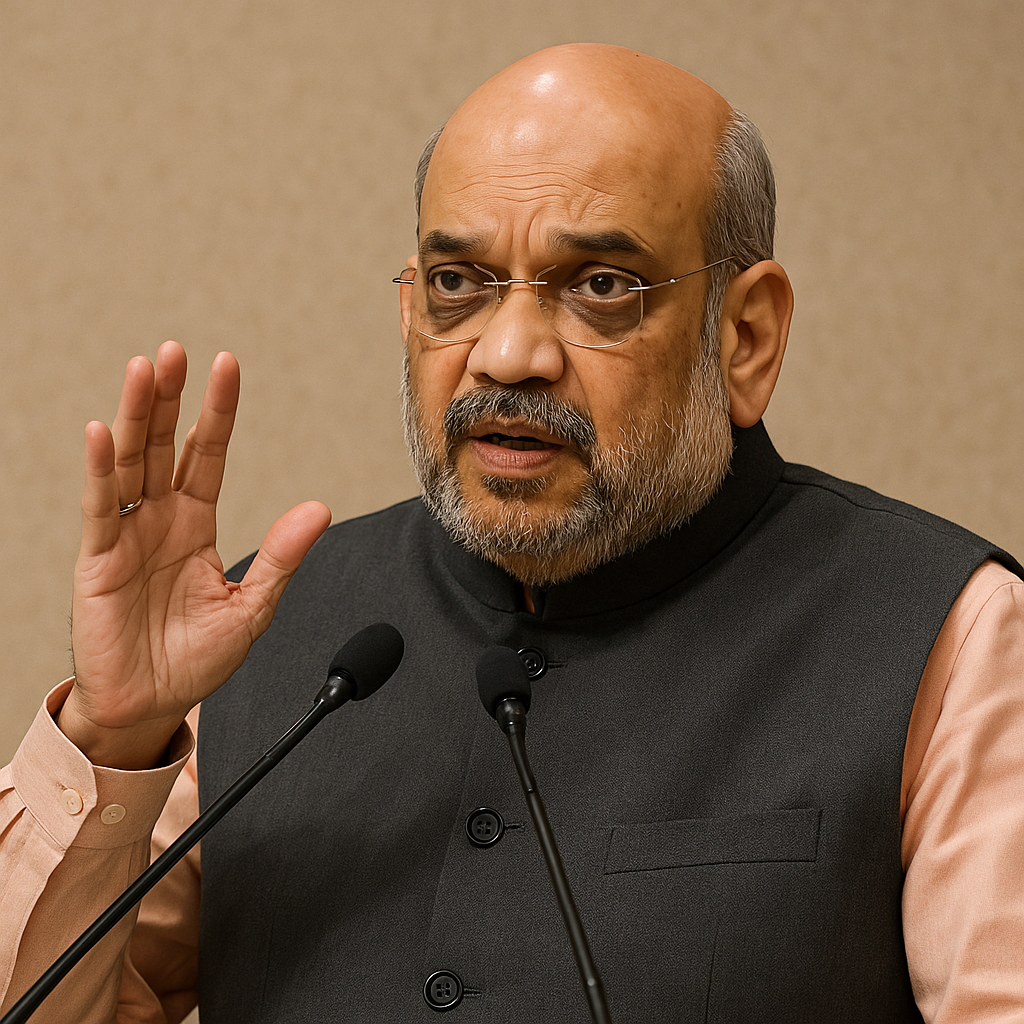Manipur Violence and President's Rule: Amit Shah Details Government's Efforts
In his speech, Shri Amit Shah shed light on the root cause of the ethnic violence, which began due to a decision by the Manipur High Court concerning a reservation-related dispute.

- Country:
- India
Union Home Minister and Minister of Cooperation, Shri Amit Shah, addressed the Lok Sabha, moving a statutory resolution for the approval of the imposition of President's Rule in Manipur. The resolution was swiftly adopted by the lower house, marking an important step in the government's response to the ongoing ethnic violence in the state. The House also observed a moment of respect and deep sorrow for those who lost their lives in the violent clashes.
In his speech, Shri Amit Shah shed light on the root cause of the ethnic violence, which began due to a decision by the Manipur High Court concerning a reservation-related dispute. He clarified that the violence was not the result of riots or terrorism but ethnic conflict between two communities, ignited by the interpretation of the High Court ruling. He emphasized that this was not a new issue, citing historical instances of ethnic violence in Manipur during previous governments.
Shri Amit Shah presented a detailed timeline of the violence, explaining that while the violence had caused significant disruption, it was brought under control swiftly. He pointed out that after the initial months of unrest, where 80% of the 260 deaths occurred, the situation had gradually stabilized. He also referenced past ethnic conflicts, including the Naga-Kuki conflict of the late 1990s, which claimed 750 lives over five years, and the 1997-98 Kuki-Paite conflict, during which 352 people were killed, and over 40,000 people were displaced.
In a direct response to the opposition's criticism, the Home Minister emphasized that the ongoing violence was not the first of its kind in Manipur. He recounted incidents of violence that occurred during previous administrations, noting that no significant actions were taken by the then government, including the Home Minister, to visit the affected regions or address the violence.
Addressing the situation under the current administration, Shri Amit Shah mentioned that since the BJP came to power in 2017, Manipur had experienced relative peace, with no ethnic violence for the past six years. Despite this, the ethnic clashes broke out suddenly following the High Court’s decision, and within two days, violence erupted, leading to widespread destruction and loss of life.
The Union Home Minister also responded to claims that the government had ignored the situation in Manipur. He assured the House that on the very day the High Court's decision was announced, security forces were immediately dispatched to the region by Air Force planes. This, he stressed, demonstrated the government's commitment to swiftly addressing the issue. He also noted that arrangements for food, medical aid, and education had been set up in the relief camps for those displaced by the violence.
While calling for an end to politicizing the issue, Shri Amit Shah emphasized that the government was doing everything possible to restore peace. He appealed to the members of the House to express respect and sorrow for the lives lost in the violence. The government, he said, was focusing on not only controlling the violence but also on rehabilitation efforts to support those affected.
After the imposition of President's Rule, the Home Minister mentioned that the government had held discussions with various organizations and community leaders. The Ministry of Home Affairs had conducted joint meetings and was prioritizing peacebuilding initiatives. He noted that there had been no deaths in Manipur for four months, with only two reported injuries, indicating that the situation was largely under control. However, he stressed that the situation would not be considered satisfactory until the displaced people were able to return to their homes and no longer needed to live in relief camps.
In his conclusion, Shri Amit Shah outlined the steps taken following the resignation of the Chief Minister of Manipur. Discussions were held with several political parties, including BJP, NPP, NPF, JD(U), and Congress, with many members acknowledging that forming a stable government under the current circumstances was not feasible. The Cabinet then recommended the imposition of President's Rule, which was subsequently approved by the President of India.
The Union Home Minister reaffirmed the government’s commitment to peace and the restoration of normalcy in Manipur, emphasizing the importance of healing the wounds of the affected communities and working towards a sustainable and peaceful resolution to the crisis.










